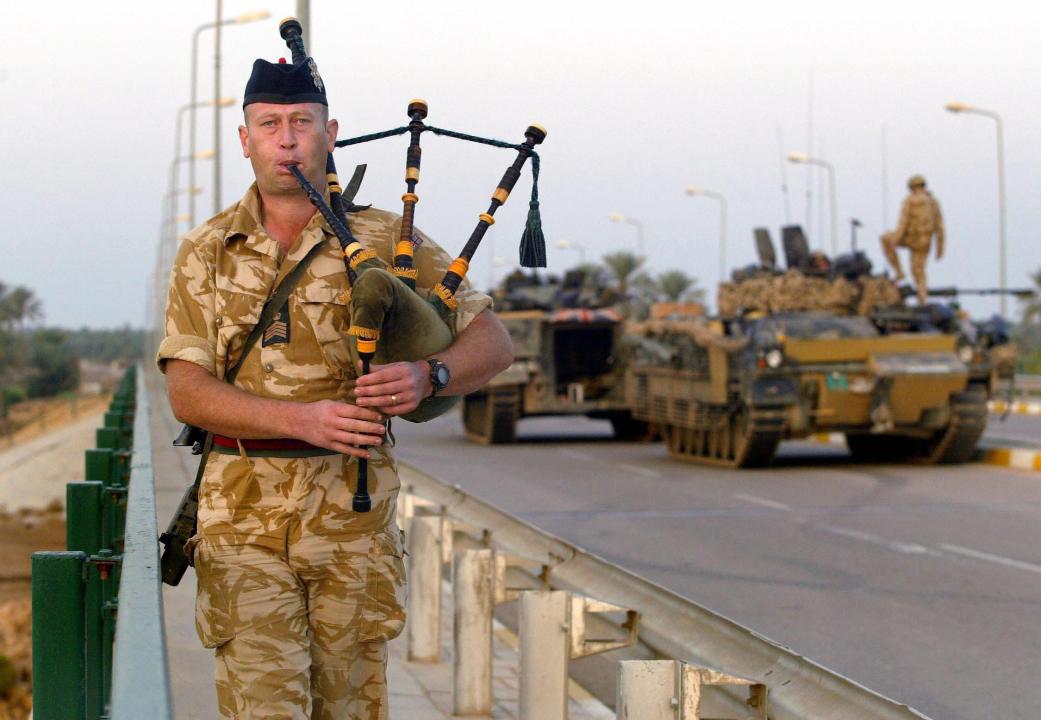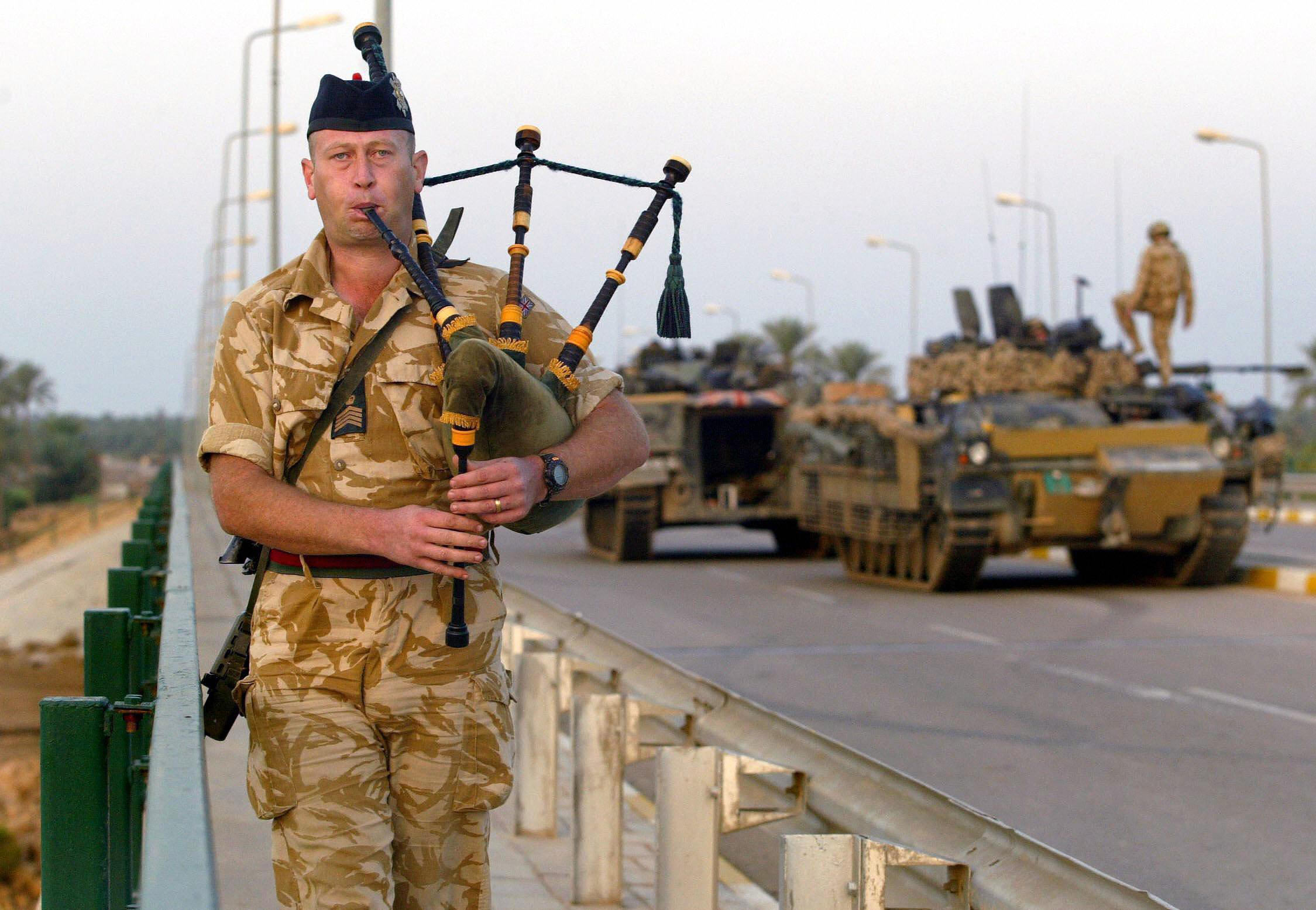Sometimes I wish Conservative cabinet ministers would couch their arguments in favour of the Union in terms of principle, not process or drab accountancy. Philip Hammond, the unimpressive Secretary of State for Defence, is the latest minister to warn that some of the perfectly solvable problems that are an inescapable feature of unwinding the United Kingdom are in fact so intractable that it’s a fool’s mission to even think about resolving them.
Mr Hammond’s interview with the Daily Telegraph today is but the latest example of this question-begging. He appears to believe that Scottish independence is an idea so obviously ridiculous that it effectively refutes itself without the need for proper argument. This is not actually the case.
So Mr Hammond mocks the likely configuration of any future Scottish Defence Force. That’s his prerogative, I suppose, but this breezy scoffing does not suggest any meaningful engagement with the issue. ‘Join the Navy and see the Clyde’ he quips, seemingly oblivious to the fact that, since he is presiding over deep cuts to Britain’s defence capability, he’s in no great position to be casting aspersions in any direction, let alone the SNP’s. Never mind, you see:
‘The Defence Secretary told the Daily Telegraph the Nationalists’ plans to take a share of the UK’s defence assets would also leave Scotland with one frigate and only a few planes to protect the entire nation.
He will also use a speech in Edinburgh today to accuse the SNP of taking a “significant gamble” with a separate Scotland’s security by assuming they could recruit and arm enough servicemen for new armed forces.’
Och, this is havers. It is certainly true that many Scots presently serving in the British armed forces might choose to remain in the UK defence set-up (just as the UK army still offers a home to citizens of the Irish Republic) but it seems most improbable that, almost alone in the developed world, an independent Scotland would be unable to staff its defence forces.
As gambles go, this is one worth lumping upon. According to Mr Hammond, however:
‘Half a destroyer would be no use to anyone, neither would be one frigate. You cannot build a naval force on that because ships need refitting. In practice, they would have to decide about what they were going to do and what they would not.’
Well, indeed. But how is deciding what they are going to do and what they are not going to do any different to the decisions Mr Hammond has to take – indeed, is taking – about the future configuration of the United Kindgom’s armed forces? It is no different at all. Presumably, however, he thinks the UK government is capable of making these decisions (and possibly even able to make correct decisions!). There seems no good reason why the government of an independent Scotland should not be equally capable of matching defence resources to defence needs.
The Telegraph appears to have a bee in its glengarry about all this, however. Yesterday the paper published an article by Paul Cornish, professor of Strategic Studies at Exeter University, criticising the SNP’s “sketchy plans” for Scotland’s defence. I’m afraid that it was, at best, only half-persuasive.
The SNP’s present notion is that Scotland would inherit a share of the UK’s present defence assets and subsequently spend approximately £2.5bn a year on defence. As a share of GDP that’s on the low end of the NATO spectrum but not so low as to be utterly inadequate. That said, I suspect the true bill – especially in the transition period – is likely to prove rather higher. (By way of comparison, Denmark spends roughly £3bn a year on defence.) Still, here’s Professor Cornish:
What could Scotland’s taxpayers get for their money? They are very unlikely to be in the market for large warships, modern combat aircraft and so on, because of the considerable costs associated with training and maintenance. And it is difficult, in any case, to see what contribution two or three frigates, or half a dozen combat aircraft could usefully make to the security of Scotland’s land mass and its people’s interests. What is more realistic is a fleet of inshore patrol boats and support vessels (probably built outside Scotland because its naval shipyards will have ceased to be viable), with tasks limited to customs inspections, counter-narcotics patrolling, visits to offshore oil and gas facilities, and maritime rescue. As for air power, Scotland’s low-budget air force might comprise a small fleet of helicopters, working in conjunction with the Scottish coastguard, as well as a few medium-sized transport aircraft which could be used for aid delivery or for charter to UN operations and the like.
More ambitiously, Scotland’s army would be organised into two Multi-Role Brigades; one at full strength and one reserve. If the strength of each of these brigades is about 5,000, and if they must cover all the usual functions of a ground force (fighting troops, communications, medical support, logistics and supply), while maintaining a viable reserve, then the deployable strength on an international peacekeeping operation might be little more than a battle group (or at the very most two) of about 700-900 combat-ready soldiers, to be replaced after some months by troops fresh from training. A force of this size might find it difficult to mount a non-combatant evacuation operation from a Scottish diplomatic mission in a conflict zone; another country or organisation would have to help in such dire circumstances.
Well, of course Scotland is not likely to be “in the market for large warships“. What possible or even semi-plausible need for them is there likely to be? Of course there are uncertainties and many of these cannot be answered until the moment for decision is actually thrust upon us. Nevertheless, Scotland’s defence needs are likely to be relatively modest.
Moreover, the ability to deploy “little more” than a couple of battle groups at any one time is not as wounding or humiliating an accusation as it seems. For all the economies of scale the UK enjoys, Her Majesty’s government now struggles, as we have seen, to maintain a 15,000 strong force in the field for any length of time. A Scottish army capable of maintaining a rotation of 1,200 troops overseas would, broadly speaking, pound for pound or man for man, be in line with present UK capabilities.
International comparisons support this view. The Irish Defence Forces are sometimes – and unkindly – considered a kind of toy army. Nevertheless the Republic of Ireland maintained a rotating force of 700 troops in Lebanon for more than 20 years as part of the UN’s peacekeeping forces. And despite this commitment Dublin was still able to contribute troops to other UN peacekeeping missions.
As a NATO member (putatively), Scotland might require a greater range of military options than the Republic of Ireland but, on a proportional basis, it is hard to look at relevant international comparisons such as New Zealand, Belgium or the Czech Republic and not think that, even as just a sketch, the SNP’s proposals are wildly unrealistic.
Indeed, if one presumes that Scotland would inherit a reasonable share of UK defence hardware one might think the Scottish defence forces would, at least initially, be better equipped than most of their comparable peers. Clearly this would be a matter for negotiation. I would expect that leasing Faslane to the rump UK for, say, 25 years, would be a useful bargaining chip to help Scotland secure a sensible settlement.
Still, if the defence-related case for the Union is pretty weak then so too are some parts of the defence-related argument for independence. Alex Salmond tells us that independence means Scottish troops would never again be sent to Iraq or any other non-UN mandated conflict. (Never mind that the Iraq War did proceed on a UN mandate. Rightly or not.) This is poppycock too, not least since it’s a promise Mr Salmond is in no position to either give or honour.
The Scottish parliament’s debate on the Iraq War may have been inconsequential. Nevertheless it produced a vote supporting military action. Some nationalists seem to suggest it was not a “real” result because Labour MSPs’ chief aim was to avoid embarrassing Tony Blair. Be that as it may, the war commanded a majority at Holyrood and it is perfectly possible that an independent Scotland – of unknown governance – would, had it existed at the time, also endorsed the war. After all, some 40 countries sent at least some troops to Iraq.
So the “no more wars” argument is, I think, specious. Better simply to say that such interventions would require a majority in the independent Scottish parliament before they could proceed and that, naturally, such decisions would be made on a case by case basis and with a view to the country’s NATO commitments.
Not that defence issues will determine the outcome of the referendum. Nevertheless it is plainly silly to pretend that an independent Scotland would somehow be defenceless. The problem with these “process” oriented unionist arguments is that, in the end, they generally rest upon the proposition that Scotland must be an unusually fusionless or otherwise incompetent place. This would be depressing if it were true but, since one suspects it is not true, it is simply vexing.








Comments